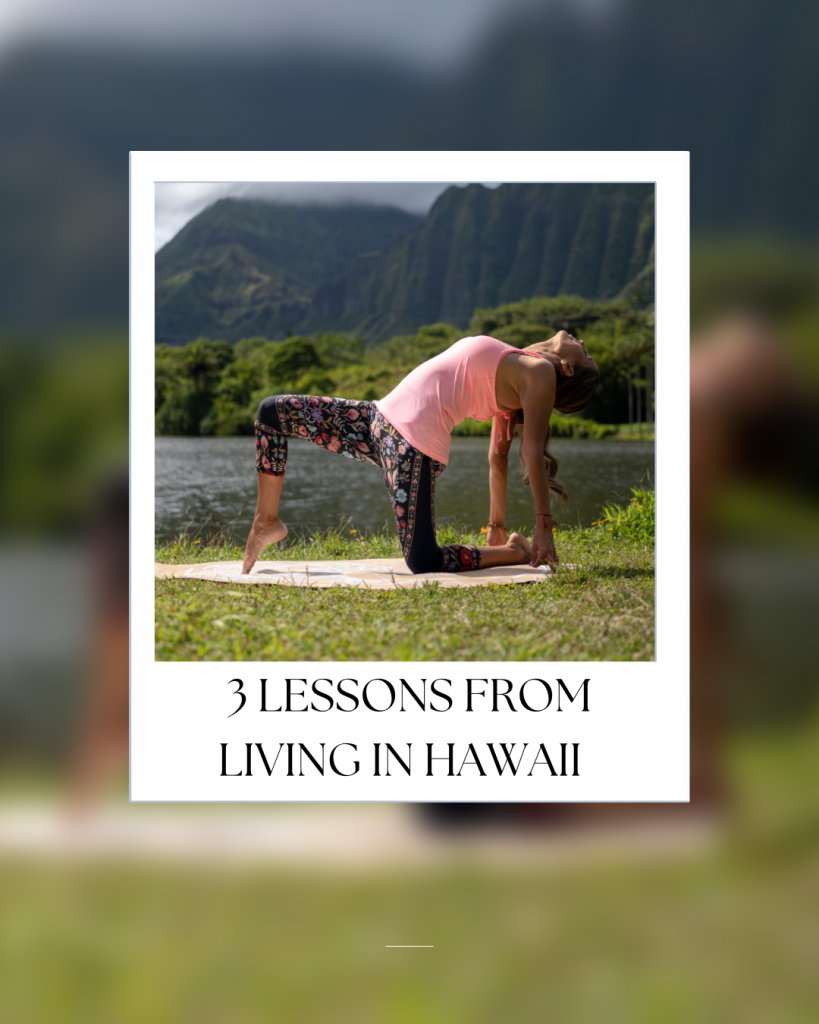Living in Paradise: 3 Profound Lessons from Three Years (and Counting) in Hawaii
Imagine waking up to the sound of gentle waves caressing the shoreline, feeling the soft embrace of warm tropical air, and witnessing breathtaking sunsets painting the sky in hues of orange and purple. I have the incredible privilege of calling Hawaii my home, and my family and I have lived here for three years (today). This island paradise has not only captivated me with its natural beauty but also taught me invaluable life lessons that have left a lasting impact on my soul. In this blog, I will share three profound lessons that living in Hawaii gifted me – the spirit of Aloha, the significance of saying Mahalo, and the essence of Pono and living in right balance.
1. The Spirit of Aloha: Love, Compassion, and Unity
The Hawaiian greeting “Aloha” is more than just a word; it embodies an entire philosophy that shapes the way Hawaiians interact with one another and the world around them. At its core, Aloha represents love, compassion, and unity. Living in Hawaii, I experience the genuine warmth and hospitality of the people, which exemplifies the Aloha spirit in action.
The spirit of Aloha goes beyond mere politeness; it’s an expression of deep respect and care for others. It reminds us to treat everyone we encounter with kindness and to embrace diversity, recognizing that we are all interconnected as part of one human family. The Aloha spirit encourages us to be more present, open-hearted, and understanding in our daily interactions, fostering a sense of community and belonging.
2. Saying Mahalo: Gratitude and Appreciation
One of the most beautiful customs I have learned in Hawaii is the significance of saying “Mahalo” – a word that means thank you, but carries a much deeper meaning. When someone shares their energy, time, or even a simple gesture of kindness, expressing gratitude through Mahalo is a way to acknowledge the essence of giving and receiving.
In our fast-paced lives, we often forget to appreciate the little things that others do for us. However, in Hawaii, saying Mahalo is a gentle reminder of the importance of recognizing and valuing the efforts of those around us. Gratitude is a powerful force that enriches relationships, nurtures positivity, and fosters a sense of interconnectedness with the world. Embracing the practice of saying Mahalo has taught me to cultivate a grateful heart and cherish the abundance of beauty in both big and small moments of life.
3. Pono: Living in Right Balance
The Hawaiian concept of “Pono” centers around living in harmony and balance with oneself, others, and nature. It emphasizes the importance of making conscious choices that align with our values and promote well-being for all. For Hawaiians, Pono is not just a way of life but a profound philosophy that underscores the significance of caring for the land and respecting the delicate ecosystems that sustain us.
Living in Hawaii, surrounded by nature’s wonders, has deepened my understanding of the delicate balance required for a sustainable and fulfilling existence. It has taught me to consider the consequences of my actions on the environment, society, and my own well-being. By practicing Pono, I have discovered that true happiness comes from finding equilibrium between personal desires and the greater good, between ambition and contentment, and between consumption and conservation.
Living in Hawaii for these last three years has been and continues to be an enriching journey that allowed me to immerse myself in the Aloha spirit, embrace the beauty of expressing Mahalo, and embody the essence of Pono in daily life. These three profound lessons have become an integral part of who I am today, shaping my interactions with others, cultivating gratitude, and encouraging me to live in harmony with the world around me.
May we all embrace the spirit of Aloha, remember to say Mahalo from the depths of our hearts, and strive to live in Pono – in right balance – as we navigate the beautiful journey of life.


